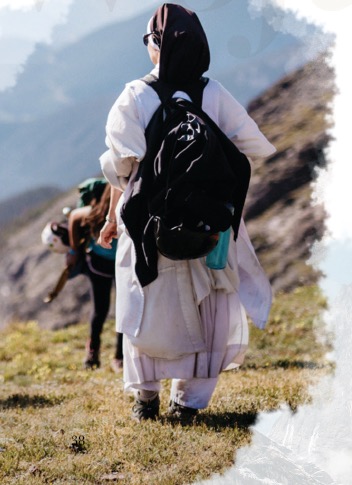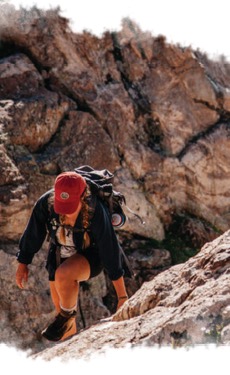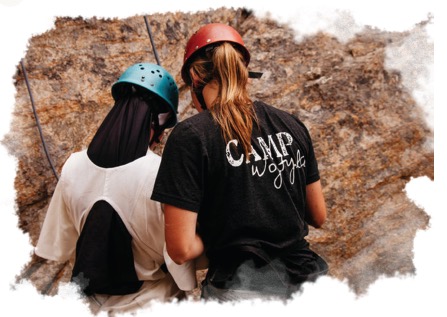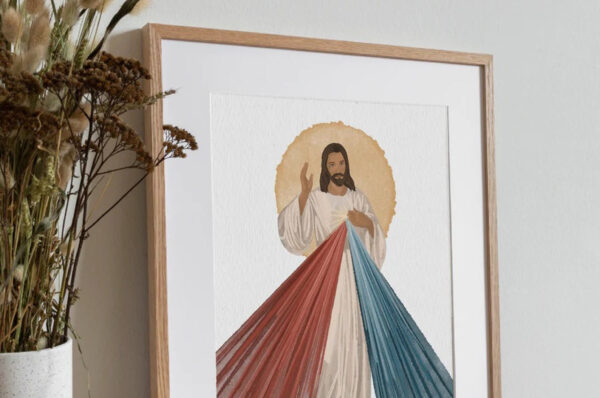What led King David to become a man described as “after God’s own heart?” What made him seek to glorify the God of Israel in everything he did, even when he failed? It was probably a combination of many things. It could have been the royalty for which he was destined or humility that he gained as a shepherd. There is one thing, however, that stands out to me; a secret is revealed to us throughout his many prayers written in the Psalms.

“When I see the heavens, the work of your hands, the moon and the stars which you have put in place. Who is man that you would keep him in mind, mortal man that you would care for him” (Ps 8: 3-4).
It was the wilderness. God speaks always. He is present everywhere, but it is in the beauty of the wilderness that we often are still enough to hear him. Picture it; young David is tending to his sheep. It is evening, and he looks up at a sky filled with stars. There is no artificial noise or light pollution. He beholds the work of a majestic hand. It seizes him. At that moment, David knows to his very core that God is everything. He is creativity. He is beauty itself. And who is David? He is nothing in light of such a God.
How could this experience day-after-day while tending to his sheep not propel David to chase after the heart of God? He knew that there was nothing else worthy of the chase.
I recently had the pleasure of visiting with Annie Powell, director of Camp Wojtyla in Erie, Colorado, who had similar experiences throughout her childhood. Growing up in the busyness of south Chicago, she and her family would get out to the Rocky Mountains every summer. There in the rugged beauty of God’s natural design, she fell in love with the adventures that awaited her outside of the cities. When she was 15 years old, she decided that she would love God for her whole life and would bring others to him by one day starting a summer camp that was as much an adventure as it was a way to worship the Almighty. The dream became a reality, and now Annie, with her family and her husband Scott, run the camp serving young men and women every summer.
Camp Wojtyla is located deep in the wilderness of the Rocky Mountains. It is 1200 acres of the same sober, wild beauty that captured the heart of David thousands of years ago. There are few modern conveniences. The campers don’t sleep in cabins; they sleep in teepees. In starting Camp Wojtyla, it was the Powells’ desire to remove the veil between the kids and nature as much as possible. The goal is total immersion, connection and harmony with the created world so that each camper is led to the heart of Christ in the way that they see him, themselves, others and nature.
 The campers attend for a week at a time, and they are separated into gender specific groups. It is an opportunity for young men and young women be themselves completely. Annie told me that she loves watching young women discover how incredible they are. During their time at camp, they are wearing what’s comfortable, not what’s fashionable. The women counselors and campers alike are challenged to go outside their comfort zone, forcing them to learn that they are far more powerful and capable than they thought. “I can’t tell you how many times a young woman told me that there was no way she could hike 15 miles,” Annie said. “At the end of the day, she is blown away that she did, in fact, hike those 15 miles.”
The campers attend for a week at a time, and they are separated into gender specific groups. It is an opportunity for young men and young women be themselves completely. Annie told me that she loves watching young women discover how incredible they are. During their time at camp, they are wearing what’s comfortable, not what’s fashionable. The women counselors and campers alike are challenged to go outside their comfort zone, forcing them to learn that they are far more powerful and capable than they thought. “I can’t tell you how many times a young woman told me that there was no way she could hike 15 miles,” Annie said. “At the end of the day, she is blown away that she did, in fact, hike those 15 miles.”
It isn’t just the challenges that bring transformation into the hearts of these women. It’s the entire experience. In the brokenness of our world, it is a rare woman that recognizes the beauty that God has placed into her nature. That beauty is too often hidden from her sight, covered with a million sins, lies and insecurities. At camp, young women are sitting before the most beautiful scenes in existence. The colors of the sky melt into each mountain peak as all of creation silently, yet powerfully, cries out to the glory of God. As they look upon this beauty, they are hearing, maybe really hearing for the first time, that they are more beautiful than this. They are digesting the fact that while the scene before them shines a beauty that leaves one breathless, they are the crown of such a scene. Jesus did not die for creation, he died for each of us individually. His passion is to win us back and restore our beauty. Far too often, we either don’t fully believe it, or we refuse God the pleasure of living a life in this truth. The camp setting, teaching and community make it much easier for these women to accept the dignity within them.
 In my conversation with Annie, she mentioned being surprised at one aspect of the camper’s experience. Sitting around the campfire, sharing stories with each other, one young woman turned to her, “This is the best,” she said. Annie asked, “Are you talking about the hike, the zip line, the rafting? What is the best?” “This, the conversations that we are having,” the young woman responded. “This is the best.” Out of everything she thought Camp Wojtyla could offer, she never would have thought that simple human connection would be one of the most important. Yet for the world we live in, the art of recovering in-person, unplugged friendship is enough to change a life on its own.
In my conversation with Annie, she mentioned being surprised at one aspect of the camper’s experience. Sitting around the campfire, sharing stories with each other, one young woman turned to her, “This is the best,” she said. Annie asked, “Are you talking about the hike, the zip line, the rafting? What is the best?” “This, the conversations that we are having,” the young woman responded. “This is the best.” Out of everything she thought Camp Wojtyla could offer, she never would have thought that simple human connection would be one of the most important. Yet for the world we live in, the art of recovering in-person, unplugged friendship is enough to change a life on its own.
Each one of us was created for a bold adventure. We are invited to recognize the beauty within our nature and bless the beauty that leads to such a wonderful Creator. To be a good Catholic goes far beyond our Sunday obligation. Jesus did not die so that we would simply go to church. He died so that we could live out the very fullest of our being with him. The monotony of every day can dull this desire inside us or blind us to the reality of our call.
As I watched the Camp Wojtyla hype video, I found myself wishing back my school days. “I want to go,” I thought to myself. I want the adventure, but I can’t go; I am too old. I can, however, have the adventure. I can be a woman who seeks after God’s own heart daily and who actively gets out into the beauty of nature to remind myself who God is and who I am. You can too. The summer awaits.
Say yes to adventure.
Say yes to beauty.
Say yes to your creator.




